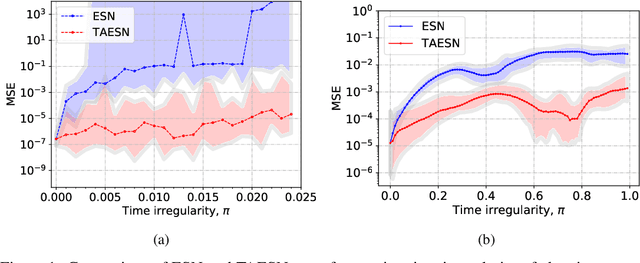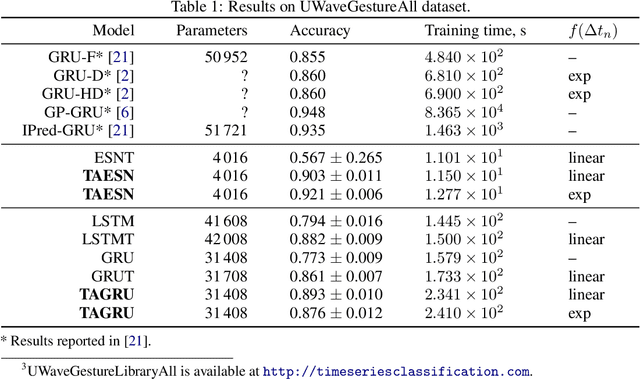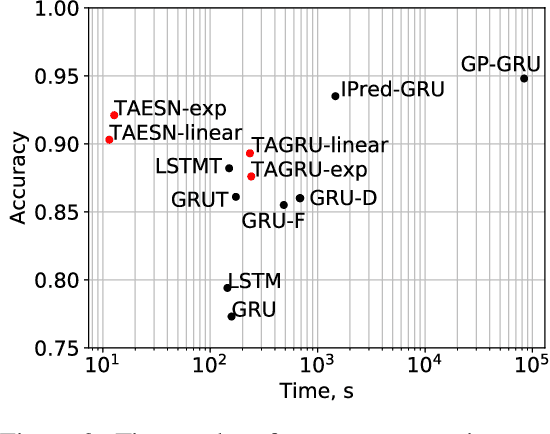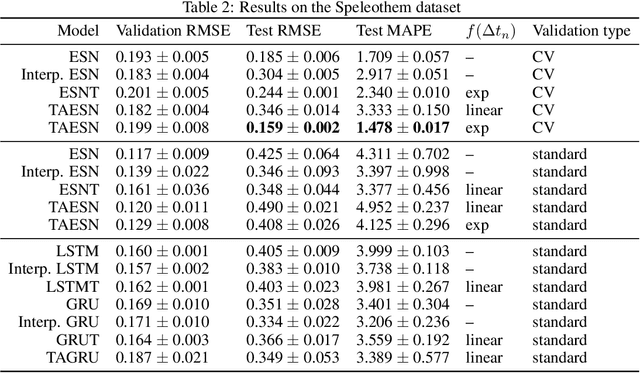Time-Adaptive Recurrent Neural Networks
Paper and Code
Apr 11, 2022



Data are often sampled irregularly in time. Dealing with this using Recurrent Neural Networks (RNNs) traditionally involved ignoring the fact, feeding the time differences as additional inputs, or resampling the data. All these methods have their shortcomings. We propose an elegant alternative approach where instead the RNN is in effect resampled in time to match the time of the data. We use Echo State Network (ESN) and Gated Recurrent Unit (GRU) as the basis for our solution. Such RNNs can be seen as discretizations of continuous-time dynamical systems, which gives a solid theoretical ground for our approach. Similar recent observations have been made in feed-forward neural networks as neural ordinary differential equations. Our Time-Adaptive ESN (TAESN) and GRU (TAGRU) models allow for a direct model time setting and require no additional training, parameter tuning, or computation compared to the regular counterparts, thus retaining their original efficiency. We confirm empirically that our models can effectively compensate for the time-non-uniformity of the data and demonstrate that they compare favorably to data resampling, classical RNN methods, and alternative RNN models proposed to deal with time irregularities on several real-world nonuniform-time datasets.
 Add to Chrome
Add to Chrome Add to Firefox
Add to Firefox Add to Edge
Add to Edge